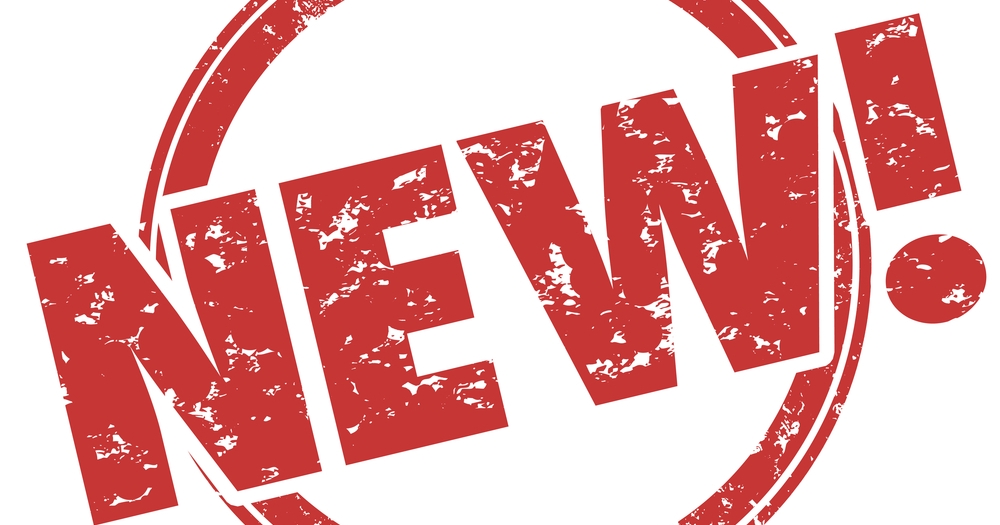Iran's New President: A Reformist's Vision For Change
The political landscape of Iran has recently seen a significant shift with the inauguration of a new president in Iran. Masoud Pezeshkian, a seasoned reformist politician and a distinguished heart surgeon, officially took office on Tuesday, pledging a fresh approach to the nation's pressing challenges. His ascension to the highest executive position signals a potential turning point for the Islamic Republic, particularly concerning its economic woes and strained international relations, largely stemming from Western sanctions over Tehran's controversial nuclear program. This transition marks a pivotal moment, as Pezeshkian steps into a role fraught with complex domestic and global expectations.
Pezeshkian's victory in the recent presidential election, securing a decisive majority, has ignited discussions both within Iran and across the international community about the future trajectory of the nation. As the ninth and current president of Iran since 2024, his tenure is anticipated to bring about a renewed focus on dialogue, economic recovery, and social reforms. This article delves into the background of the new president in Iran, his campaign promises, and the profound implications of his leadership for the Iranian populace and its standing on the world stage.
Table of Contents
- The Dawn of a New Era: Iran's Presidential Election 2024
- Masoud Pezeshkian: A Profile of Iran's Ninth President
- Masoud Pezeshkian: Personal Data & Biodata
- A Mandate for Change: Pezeshkian's Campaign Promises
- Economic Horizons: Tackling Sanctions and Reviving the JCPOA
- Social Reforms and International Engagement: A Dual Path
- Navigating the Future: Challenges and Opportunities for Iran
- Expert Perspectives on Pezeshkian's Presidency
The Dawn of a New Era: Iran's Presidential Election 2024
The election of Masoud Pezeshkian as the new president in Iran marks a significant moment in the country's political history. His victory, officially reported by Iranian state news agency Press TV, saw him secure 53.3% of the votes in the July 5 runoff, or 53.6 percent against his ultra-hardliner rival Saeed Jalili, who garnered 44.3 percent. This outcome is particularly noteworthy given that Pezeshkian represents the reformist faction, a stark contrast to the conservative dominance that has largely characterized Iranian politics in recent years. His win comes after a period of political uncertainty following the death of former president Ebrahim Raisi, which necessitated a snap election. Mokhber, who had temporarily held the role, is expected to step down as the constitution requires a new election to be held. Pezeshkian's election, therefore, not only fills a crucial leadership vacuum but also signals a potential shift in the country's domestic and foreign policy orientations. His ascent to power, particularly as a reformist, has generated considerable interest and speculation about the future direction of the Islamic Republic, promising a new era of governance.Masoud Pezeshkian: A Profile of Iran's Ninth President
Masoud Pezeshkian, the new president in Iran, brings a unique blend of professional expertise and political experience to his new role. Born on September 29, 1954, he is not only a seasoned politician but also a respected heart surgeon. This dual background provides him with a distinctive perspective, combining a deep understanding of public health with a long history of public service. At 69 years old, he holds the distinction of being the oldest person ever to be elected president of Iran, taking office at an age that reflects decades of engagement in the nation's political life. His professional journey as a medical practitioner, particularly as a heart surgeon, underscores a career dedicated to service and precision, qualities that many hope he will bring to the presidency.Early Life and Education (Biography)
Masoud Pezeshkian's early life and educational background laid the foundation for his distinguished career. Born in Oroumieh, West Azerbaijan Province, his academic pursuits led him to specialize in medicine, culminating in his becoming a heart surgeon. This demanding profession requires meticulous attention to detail, critical thinking, and a profound sense of responsibility—attributes that have undoubtedly shaped his approach to public life. His journey from the operating theatre to the highest echelons of Iranian politics is a testament to his diverse capabilities and commitment to serving his country. This medical background sets him apart from many of his predecessors and may influence his approach to policy-making, particularly in areas related to public welfare and healthcare.Political Journey and Reformist Stance
Pezeshkian's political career spans decades, during which he has served as a member of parliament, accumulating extensive legislative experience. He is a prominent figure within the reformist faction, advocating for more moderate policies and greater engagement with the international community. His reformist credentials are well-established, but his path to the presidency has not been without obstacles. Notably, in 2021, Iran’s conservative regime barred him and his entire reformist camp from running in the presidential election, highlighting the political challenges he has faced. Despite these setbacks, his perseverance and commitment to his reformist ideals ultimately led to his successful campaign in 2024. As a reformist, he has openly vowed to ease headscarf laws, a significant social reform that resonates with a segment of the Iranian population seeking greater personal freedoms. His election as the new president in Iran, therefore, represents a victory for the reformist movement and signals a potential shift towards a more open and internationally engaged Iran.Masoud Pezeshkian: Personal Data & Biodata
| Full Name | Masoud Pezeshkian |
| Born | 29 September 1954 (age 69) |
| Place of Birth | Oroumieh, West Azerbaijan Province, Iran |
| Profession | Heart Surgeon, Politician |
| Political Affiliation | Reformist Faction |
| Current Office | Ninth President of Iran (since 2024) |
| Predecessor (Direct) | Mohammad Mokhber (acting) |
| Votes Secured (2024) | 16.3 million votes (53.3% / 53.6%) |
| Key Campaign Promises | Remove economic sanctions, improve ties with the world, ease social restrictions, revive JCPOA. |
A Mandate for Change: Pezeshkian's Campaign Promises
During his campaign, the new president in Iran, Masoud Pezeshkian, made numerous promises that resonated with a populace eager for change and improvement. His core pledges centered on alleviating the economic hardships faced by Iranians and fostering better relations with the international community. He explicitly stated his commitment to removing economic sanctions imposed by the West, which he argues have crippled the Iranian economy since the withdrawal of the United States from the Joint Comprehensive Plan of Action (JCPOA). Beyond the economy, Pezeshkian also campaigned on the promise of improving ties with the world and easing restrictions on social freedoms, particularly the controversial headscarf laws. While his campaign was marked by these significant promises, it was also noted, as was the case with other candidates, that detailed plans for achieving these ambitious goals were somewhat lacking. Nevertheless, his overarching message of reform and engagement offered a glimmer of hope for many Iranians yearning for a more prosperous and open society.Economic Horizons: Tackling Sanctions and Reviving the JCPOA
A cornerstone of Masoud Pezeshkian's agenda as the new president in Iran is the revitalization of the country's economy, which has been severely impacted by years of Western sanctions. He has consistently advocated for engagement in constructive talks with Western powers to revive the JCPOA nuclear deal. Pezeshkian firmly believes that lifting these sanctions is paramount to economic recovery, repeatedly stating that they have "crippled the Iranian economy." His vision extends beyond mere survival; he sees an opportunity for Iran to "transcend these limitations and enter into a new era." This new era, as he envisions it, would commence with the acknowledgment of Iran’s security concerns and a commitment to cooperation on mutual challenges. His appeal for sanctions relief is a central theme of his presidency, indicating a clear intention to prioritize economic diplomacy. The success of his administration will largely hinge on its ability to navigate the complex international landscape and secure a pathway to economic normalization, thereby improving the daily lives of Iranian citizens who have borne the brunt of these economic pressures.Social Reforms and International Engagement: A Dual Path
The election of Masoud Pezeshkian as the new president in Iran signals a potential dual path for the country: one focused on internal social reforms and another on recalibrating its relationship with the global community. These two aspects are deeply intertwined, as greater international engagement could alleviate economic pressures, which in turn might create space for domestic liberalization. Pezeshkian's campaign explicitly touched upon both these critical areas, offering a vision that contrasts sharply with the more conservative approaches of previous administrations.Easing Social Restrictions
A significant part of Pezeshkian's appeal to the reformist base and younger generations was his vow to ease headscarf laws. This promise addresses a highly sensitive and contentious issue within Iranian society, where debates over personal freedoms and religious mandates often clash. While the specifics of how these laws would be eased remain to be seen, the very promise itself represents a departure from the strict enforcement seen under more hardline leadership. Beyond the headscarf laws, his broader commitment to easing restrictions on social freedoms suggests a potential shift towards a more tolerant and open society, where individual liberties might be given greater consideration. This aspect of his agenda could significantly impact the daily lives of millions of Iranians, particularly women and youth, who have been vocal in their desire for more social flexibility.Reaching Out to the West
On the international front, Masoud Pezeshkian has campaigned on the platform of initiating talks with the United States over the country's nuclear program. This stance is a clear indication of his desire to de-escalate tensions and seek diplomatic solutions to long-standing disputes. He has emphasized the importance of "cooperation on mutual challenges," suggesting a more collaborative approach to global issues rather than one rooted in confrontation. In his inaugural remarks, he conveyed a message of hope for constructive dialogue, stating, "I hope that this message from Iran is carefully heard today." This appeal for international understanding and engagement is crucial for Iran to break free from its isolation and reintegrate into the global economic and political system. The success of his outreach efforts will depend on the willingness of Western powers to reciprocate and find common ground, particularly concerning the nuclear deal and sanctions relief.Navigating the Future: Challenges and Opportunities for Iran
The election of Masoud Pezeshkian as the new president in Iran undoubtedly ushers in a period of both significant challenges and promising opportunities. What his win truly means for the future of Iran is a complex question, laden with domestic and international implications. Internally, Pezeshkian faces the formidable task of delivering on his promises of economic recovery and social reform while navigating the intricate power dynamics within the Iranian political system, where the Supreme Leader holds ultimate authority. Balancing the expectations of his reformist base with the realities of conservative institutions will require astute political maneuvering. The lack of detailed plans during his campaign, while common, highlights the immediate need for concrete strategies to address the nation's deep-seated economic issues, including high inflation and unemployment, exacerbated by sanctions. Externally, his presidency presents an opportunity for a diplomatic reset. His expressed desire to revive the JCPOA and engage in constructive talks with Western powers could pave the way for reduced international tensions and the potential lifting of sanctions. This would not only provide a much-needed boost to the Iranian economy but also enhance Iran's standing on the global stage. However, the path to reconciliation is fraught with obstacles, including lingering distrust and differing interpretations of international agreements. Pezeshkian's administration will need to demonstrate credibility and consistency in its foreign policy to build confidence with international partners. The new president in Iran has a narrow window to capitalize on the momentum of his election and translate his reformist vision into tangible improvements for the Iranian people, marking a critical juncture in the nation's history.Expert Perspectives on Pezeshkian's Presidency
The election of Masoud Pezeshkian as the new president in Iran has been met with a range of analyses from experts both inside and outside the country. Many view his victory as a significant, albeit modest, step towards reform within the Islamic Republic. His background as a heart surgeon and a long-standing member of parliament, coupled with his reformist stance, suggests a leader who understands both the practical needs of the populace and the intricacies of the political system. The fact that he is the oldest man ever to be elected president of Iran, taking office at 69, also points to a seasoned politician who has witnessed decades of the country's evolution. Experts highlight that Pezeshkian's campaign, which focused on "modest social reforms and talks with the United States over the country's nuclear program," reflects a pragmatic approach. His appeal for sanctions relief, articulated through statements like, "We have the opportunity to transcend these limitations and enter into a new era. This era will commence with the acknowledgement of Iran’s security concerns and cooperation on mutual challenges," indicates a willingness to engage constructively. The concluding remark from his campaign, "I hope that this message from Iran is carefully heard today," underscores a desire for international dialogue and a departure from isolationist policies. While the ultimate power still rests with the Supreme Leader, a reformist president like Pezeshkian can influence the tone and direction of policies, particularly in economic and social spheres. His election, therefore, is seen by many as a potential opening for greater flexibility and a more outward-looking approach for Iran, offering a glimmer of hope for those advocating for change.Conclusion
The inauguration of Masoud Pezeshkian as the new president in Iran marks a pivotal moment for the nation, signaling a potential shift towards a more reformist and engagement-oriented future. As a seasoned politician and a heart surgeon, Pezeshkian brings a unique blend of experience and a clear mandate for change, particularly concerning the crippling economic sanctions and the desire for social freedoms. His commitment to reviving the JCPOA, fostering constructive talks with Western powers, and easing domestic restrictions offers a glimmer of hope for a populace yearning for improved living conditions and greater openness. While the path ahead is undoubtedly fraught with challenges, including navigating complex internal power structures and overcoming deep-seated international mistrust, Pezeshkian's election represents an opportunity for Iran to embark on a new era. His emphasis on cooperation and mutual challenges suggests a pragmatic approach to foreign policy, aiming to transcend past limitations. The world will be watching closely to see how this new president in Iran translates his promises into tangible actions, shaping not only the lives of millions of Iranians but also the geopolitical landscape of the Middle East. We invite you to share your thoughts on what Pezeshkian's presidency might mean for Iran and the world in the comments below. For more in-depth analysis of Iranian politics and international relations, explore other articles on our site.Article Recommendations



Detail Author:
- Name : Shaylee Pfannerstill
- Username : quitzon.wilfrid
- Email : crolfson@dicki.net
- Birthdate : 1984-11-11
- Address : 44151 Lakin Pike East Lea, KS 12795
- Phone : (832) 745-4327
- Company : Bahringer-Brown
- Job : Administrative Services Manager
- Bio : Culpa ut velit possimus sit nulla. Qui repellat molestias officiis voluptatem. Quia dolores sequi eum eum.
Socials
twitter:
- url : https://twitter.com/hettingert
- username : hettingert
- bio : Quia ut et aut sunt esse. Aliquam sed et modi dolor. Quam error aut non ipsam. Quia nobis qui laudantium. Non eos est iure asperiores.
- followers : 5049
- following : 892
tiktok:
- url : https://tiktok.com/@hettinger2020
- username : hettinger2020
- bio : Non qui aut quo eos alias accusantium et sed.
- followers : 415
- following : 2772